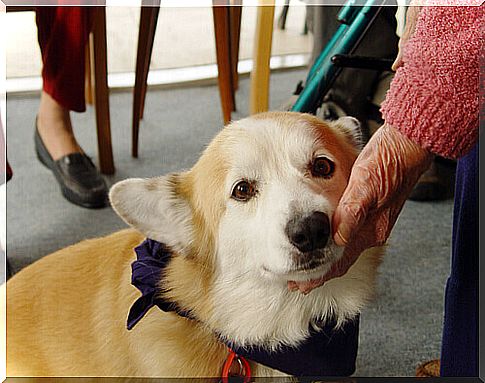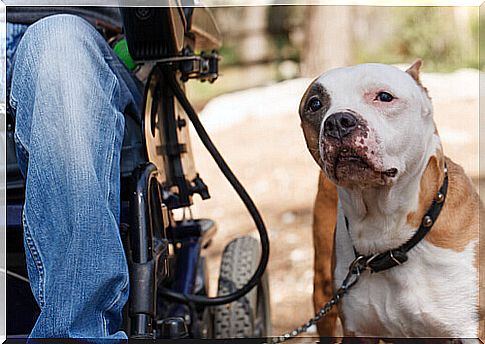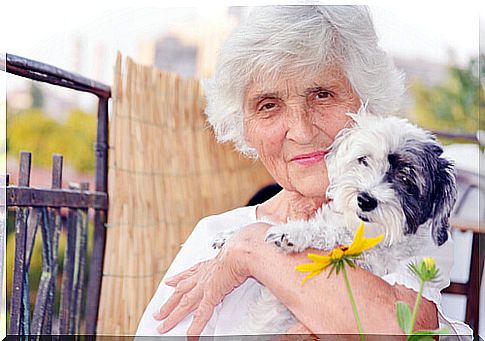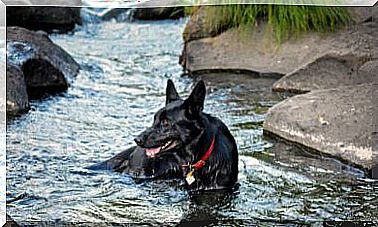Therapist Dogs: Know All About This Profession

With the advancement of technology, we are immersed in an electronic world that makes us dependent on electronic devices, which make us believe that we have a broad social life when, in fact, what they do is distance us from people and create difficulties when it comes to to relate face to face.
Chaos, globalization and other factors that combine with the above, make there are social needs for which we have to seek new alternative services.
One of these alternative services is dog therapists. It has been proven that dogs have a great ability to connect with our emotions and, therefore, they provide us with what we need at every moment.
Well, let’s start at the beginning and know what therapist dogs are and what they do.
What are therapist dogs

They are dogs specifically trained to be part of a therapeutic team that aims to achieve concrete goals.
Dogs participate in therapies and contribute with good results on a physical, emotional, preventive, educational and many other levels. This is because the presence of an animal in therapeutic exercises motivates the person to perform certain activities that he otherwise would not do.
How are therapist dogs trained?
The training of therapist dogs lasts between 4 and 8 months and is done through positive reinforcement. Training is achieved based on hard work and daily effort.
During these days of training, they are taught to have great self-control of their rear motor power, so that they are able to walk through narrow places without dropping anything with their tail. These therapist dogs also learn not to lick unless allowed to.
They are taught not to change when faced with loud noises, unpleasant floors and strong smells, such as those in a nursing home or hospital. They are also subjected to simulated situations to prove their reactions and, in this way, it is possible to assess which type of pathology they are best suited to.
These therapist dogs that are chosen to be specially trained must be at least between a year and a year and a half old.
Reminders of obedience are given and they should practice at least one hour of exercise daily.
Like any other dog, therapist dogs also need to feel that they’re doing it right, so handlers take it upon themselves to give them prizes to keep them constantly motivated.
What are therapist dogs used for?

These therapist dogs are used in hospitals, psychiatric hospitals, schools that have gone through stressful situations (a shooting, for example), geriatric clinics and prisons.
For each area, something different is needed, so the training is personalized. We must not confuse assistance dogs, such as guide dogs, with therapists.
In the case of assistance dogs, they live with the people they help and are able to detect medical emergencies and help facilitate daily tasks.
Therapist dogs live with the guide and are included in therapy sessions with the aim of improving the cognitive, sensory, motor and socialization systems.
For example, when an elderly person goes to live in a nursing home, the most normal is that, when they find themselves in the last stage of their life, their self-esteem is reduced. This is where the therapist dog comes into action, participating in activities that aim to reinforce the patient’s emotional needs.
On the other hand, in the case of a child with cancer, it may be enough to simply include him in activities other than the usual ones with one of the therapist dogs and, in this way, break his routine and make him forget the stress resulting from the treatment. which is being submitted.
Therefore, depending on the place and circumstances of the people that therapist dogs help, the work to be done will be different.
But regardless of the work that dog therapists do, their goal is always the same: to help people have a better life and so they can say: “I love myself”.
Is it not a luxury to be able to count on such a loyal species that it is capable of being trained for such noble ends?









